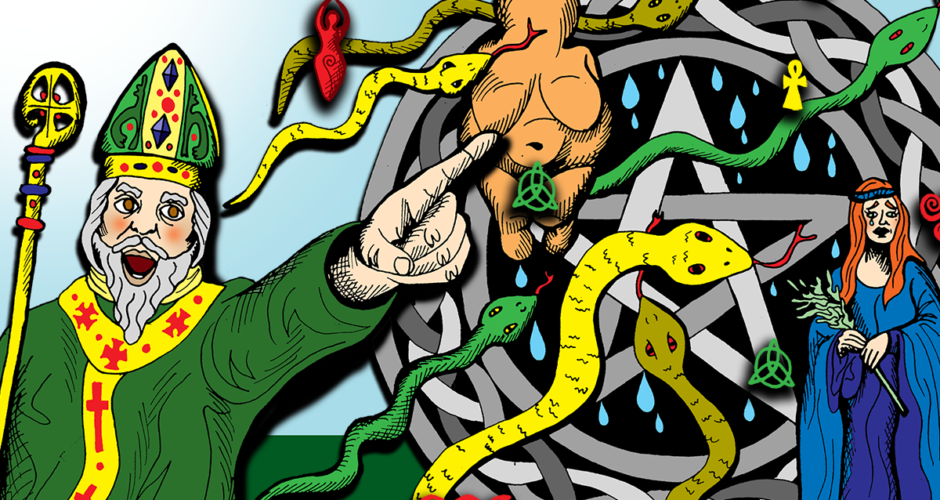17 March is much more than just Guinness, pinching, and wearing green. Like many traditional holidays, St Patrick’s Day has roots in Paganism.
Paganism today goes by many names and is still a practised around the world, with roughly 250,000 neopagans in the United Kingdom alone. Pagan festivals and holidays tend to be rooted around deep connections with nature and natural seasonal cycles.
St Patrick’s Day honours the patron saint of Ireland, St Patrick, who was instrumental in transitioning Ireland away from Paganism towards Christianity.
You’ve probably heard the legend of St Patrick delivering a sermon so powerful it chased the snakes out of Ireland.
That story is believed by many to be a metaphor representing St. Pat chasing the Pagans and Druidic priests (the snakes) out of the country.
For the men and women who identify as Pagan, there are inimical feelings around the sordid history of the day and what it represents, with many choosing not to acknowledge it at all.
We reached out to two people who identify with the Pagan religion to hear how they celebrate (or more accurately, commiserate) on St. Patricks Day and what the day represents for them.
‘I think the real question here is not why I do or don’t like St. Patrick’s Day, but why do Pagans dislike St Patrick’s Day,’ Sprialdancer, a Pagan in her early 50s, tells Metro.co.uk.
‘Celebrations of this day may have become more secular over the years, but at its origin, it’s a celebration of patriarchal religious colonialism and the destruction of indigenous traditions. Which is not cool.’
‘It’s also totally attributed to this man, who “drove the snakes” (widely believed to be the Druids and worshippers of the Divine Feminine in her many guises) out of Ireland. Which is not true.’
‘This Christian conversion happened over time. Aggressively evangelizing the native Irish and turning them away from their ancestral traditions, their indigenous religions, and the worship of their indigenous Gods through social and psychological pressure isn’t really a positive act, and today would be seriously frowned upon.
‘However, it had a tremendous influence on the Catholicism that emerged and it’s become almost a cliché to point out how many Irish Gods and Goddesses suddenly received new life as saints.
‘His name wasn’t even Patrick, it was MaewynSuccat. He became known as Patrick named after his place of burial.
‘Actually, his life is quite interesting, but hardly the legend we are led to believe. St Patrick was imbued with many of his attributes and his legend grew well after his death.’
But Spiraldancer says continuing to dwell on the history of the day hardly seems pragmatic. She’d rather use it as a day to celebrate the positive influence all things Celtic had on the Paganism that is practised today.
‘Since almost all Christian holidays have some prior basis in paganism it seems a little bit pointless to continue to huff and puff about it.
‘Instead, many of us Pagans use this day to remind ourselves of the Druids and the traditions of the bards by playing music, listening to stories and honouring the Triple Goddess with an altar and a libation (which is not green beer!)’.
Ly de Angeles, an author and witch, explains that in her opinion, ‘nothing christian has anything to do with witchcraft’.
‘As an educated woman, why would I have anything to do with anything christian? I despise the history of brutality and the brainwashing that still occurs
‘The slaughter of Hypatia. The synod of Whitby. The four hundred year war by the protestant anglo-saxon government. The manufactured great famine. The magdalene laundries. The abortion ships. The pale. The inquisition. Some things, do not deserve or require an upper case.’
Ly de Angeles and her community created an ‘unpatrick day’ to be celebrated on 17 March and where she and fellow Pagans can celebrate all things Celtic.
‘As an entire community back in the 90s in Byron Bay I, along with two others, put together a pagan nobody-pays, nobody-profits day on that date to do an unpatrick day, called The Wearing of the Green. The 17th was a Sunday. Over 3000 people came. We celebrated Irishness.
































